Dotcom bubble part 1
Dotcom bubble part 1
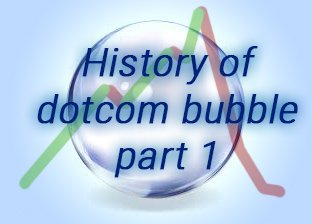
I decided to describe more comprehensively the "dotcom" bubble which frequently is compared to the present cryptovalent bubble. Do not expect a reliable text that matches the needs of professional articles. I write everything out of my memory. I don't remember the details like names of many people, programmers, or $ amounts, course prices, etc. I'm not going to do any great research, sorry :P I used to be very interested in IT issues, there was no access to the Internet. I read a lot of books about the subject and the press, so I remember something there.
In the first half of the 1990s, the Internet for the ordinary user was practically useless. Practically the text interface itself, no web pages. It has been used mainly by specialised groups such as stockbrokers, etc. Of course, universities were connected to it, allowing students to use it. In those years no-one saw any revolution in it, nor imagined how it could evolve. Apart from one student... Marc Andreessen.
He was incredibly excited about the internet and was the only one to imagine that in the future he could be used by ordinary people on a huge scale. Although his colleagues did not share his enthusiasm, he persuaded them to write their first web browser together, "giving the web" a graphical interface that will make it easier for people to use it. This is how the Mosaic browser was created. The program quickly began to spread at an incredible rate...
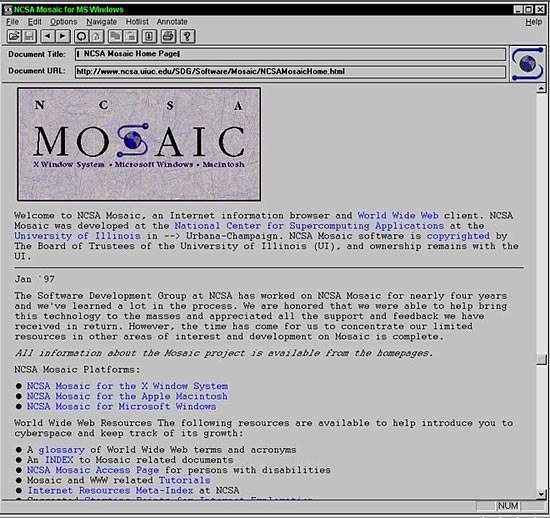
(screen v1.0, that's how it looked then ;)
At that time, Microsoft was a monopolist in virtually every field of software. A hopeless company that could never have foreseen anything on its own, but always using its monopoly and even using all illegal methods, it was destroying competition and taking over the market. It was the same then. Microsoft ignored the subject without seeing anything revolutionary on the Internet or in Mosaic. However, a millionaire who invested in Mosaic saw the occasion. He brought together the students responsible for its creation and began to create the successor to Mosaic, or Netscape Navigator
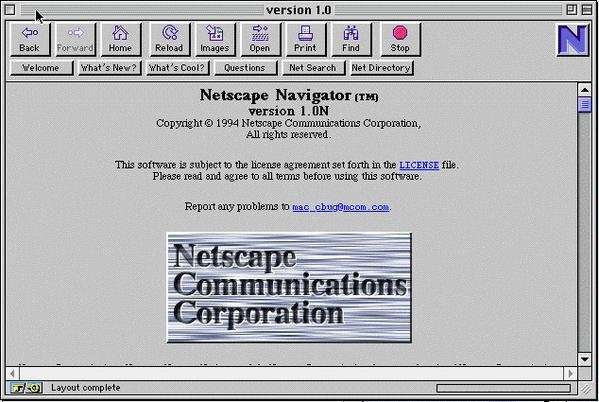
Netscape Navigator v1.0
Their new browser became the fastest-flowing software in history, evoking the beginnings of excitement on Wall Street. Of course, they were listed on the NASDAQ quite quickly. It was then that the dotcom bubble started. Netscape has become the fastest growing company, arousing great interest in the new market. Then Bill Gates woke up and panicked, seeing how great a revolution the Internet would be. He copied a competing idea and created a browser, Internet Explorer .
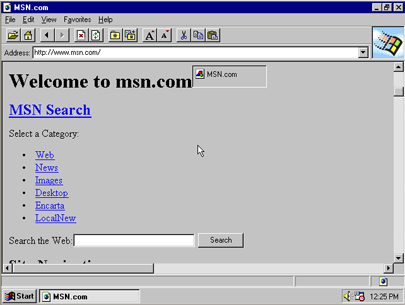
Internet Explorer v1.0
Then he used his position and started blackmailing computer manufacturers to sell computers with Internet Explorer preinstalled and Netscape banned. Internet Explorer was not installed with Windows. It was not with the operating system. But manufacturers of ready-made computer sets, e.g. HP, Compaq, Dell, sold ready-made computers with Windows installed... and MS forced them to install additionally Internet Explorer. Some have previously installed Netscape Navigator. MS did not blackmail them directly, but pressured them and the producers were afraid that if they refused, MS would take away their license to sell WIndows together with a computer. The MS could afford it. What would the user do? He would probably choose another manufacturer, or buy a computer and separately a Windows. MS did not risk anything and would not lose anything from it and the computer manufacturer did.
In this way, Netscape began to lose more and more market share. The next step was to fully integrate Internet Explorer directly into the new Windows 98, which had become fully connected. An ordinary file explore window, directory viewer was also a web browser. This has already completely knocked Netscape out.
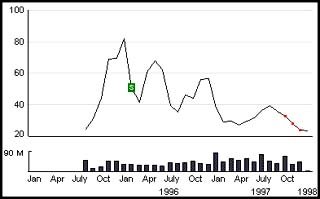
(I managed to find only a tiny chart of their shares on the stock market)
Netscape brought Microsoft to court. The matter was very loud and lasted quite a long time. On YouTube you can watch Bill Gates's hearing, which takes several hours and is divided into 12 parts.
Known from this to show how prefidelily lies, mattresses, darkens. Over Microsoft there was a possibility of catastrophe. The court, seeing how huge a monopoly he was, considered ordering the division of MS into several separate companies in order to prevent him from following similar practices in the future. Fortunately, the US court ordered the MS only to separate the web browser from the operating system again (today, after entering the address in the exploreer, no website will be displayed). The EU court ordered MS to create a browser selection window which the user intends to use when starting the system for the first time.
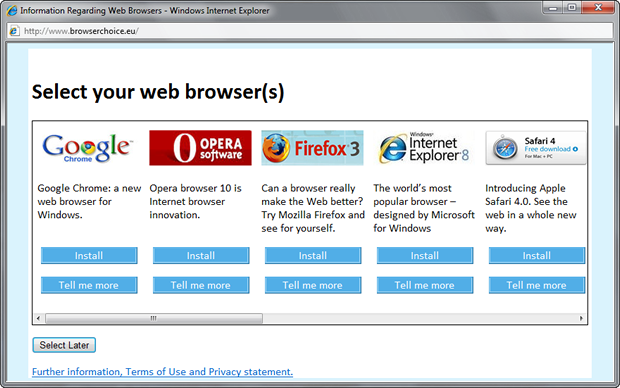
Why is the browser itself so important? Today, the majority of users use computers practically only via them. For example, Google Chrome immediately suggests you set up an account with them and use a variety of different services. What do free Opera or Firefox browsers, for example, do they do for you? Currently, the page address bar is also used as a direct search field, most often Google. Google is paying them millions of dollars for this all the time. The starter window often displays icons for different services, which they pay for, depending on the region. E.g. eBay, Yahoo, Facebook, New York Times etc.
This is the end of the description of the beginning of the dotcom bubble, wait for the next entries.